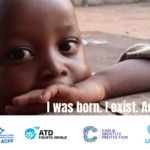
Side event on Building a More Resilient Future with Inclusive Civil Registration and Vital Statistics – strengthening linkages with the health sector – CRVS stakeholder consultation workshop in Vanuatu
The meeting, co-organized by the Pakistan Embassy and Statistics Division, aims to address the problem of low civil registration rates over the last several decades. “This shifting of some or all the reporting responsibility away from the individual and onto the health sector recognizes that civil registration is a fundamental human right and the data produced is a public good and, therefore, governments have a compulsory duty to actively ensure the registration of all vital events in their territory. Pakistan is following this international paradigm shift and significantly shifting responsibilities for registration away from families”. The video highlights Pakistan’s efforts in utilizing CRVS to combat child marriage and improve data for health planning.
The second CRVS stakeholder consultation workshop in Vanuatu took place on 18 May 2022, as part of the ongoing Business Process Improvement (BPI) project for birth and death registration. “ESCAP is supporting a Core Team of CRVS stakeholders in Vanuatu to identify the bottlenecks in civil registration processes, using Stage 1 of the CRVS Systems Improvement Framework to assess, analyse and redesign the underlying processes of birth and death registration, with the end goal of streamlining civil registration processes to alleviate the burden on families reporting vital events”. During the consultation workshop, the Core Team of CRVS stakeholders finalized the mapping of current birth and death registration processes, and identified the performance issues, root causes and potential improvement policies.
CHIP notes the importance of both initiatives which address the birth registration low-rate issue effectively, that will better protect children’s right to identity.





